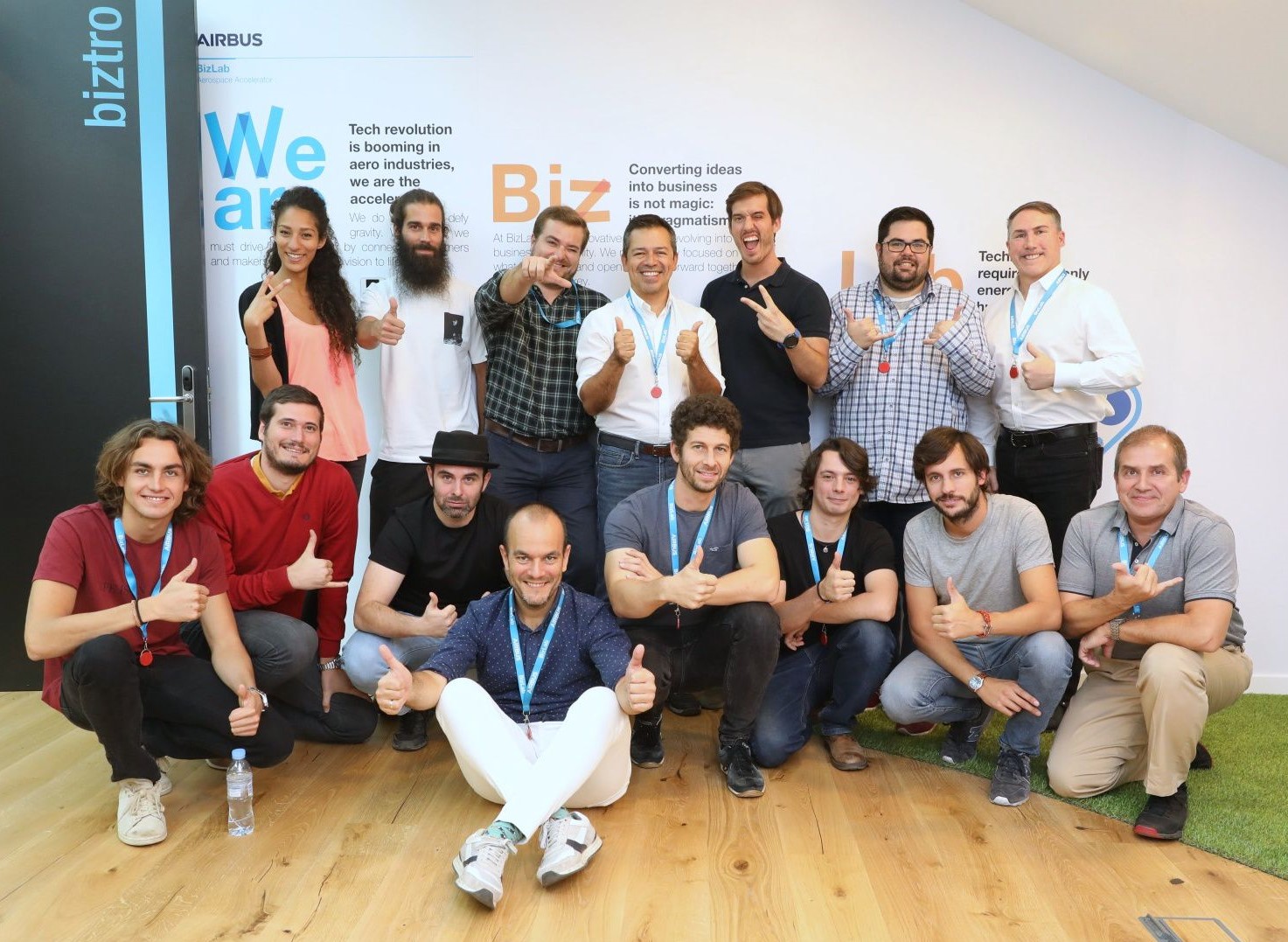Summary:
- Airbus has selected 24 new start-ups to join its BizLab for the launch of the fourth accelerator programme;
- Since starting in 2015, Airbus BizLab has accelerated 50 start-ups and 40 internal projects, which have raised a combined EUR19.5 million;
- The start-ups will be based across four BizLab sites in Toulouse (France), Hamburg (Germany), Bangalore (India) and Madrid (Spain).
Airbus BizLab is a global aerospace business accelerator where startups and Airbus intrapreneurs work to speed up the transformation of innovative ideas into valuable businesses. Since starting in 2015, Airbus BizLab has accelerated 50 start-ups and 40 internal projects, which have raised a combined EUR19.5 million.
This year, Airbus BizLab also challenged start-ups to propose technical solutions contributing to the United Nations Sustainable Development Goals that Airbus is committed to.
With the opening earlier this year of Airbus BizLab's fourth site in Madrid (Spain) - after Toulouse (France), Hamburg (Germany) and Bangalore (India) - the selected firms will join a consolidated global network within the four sites. During the six-month acceleration programme, the 24 startups will receive support from an international team of experts from various fields and have access to dedicated coaching staff, networking opportunities and co-working spaces.
Hailing from ten countries around the world, Airbus says the new start-ups were selected out of 495 applications from 64 countries. One of the main criteria used in the selection process were the synergies between the start-up projects and Airbus' innovation strategy, it says.
Many fledgling aerospace businesses struggle today to turn innovative ideas and technologies into commercial reality, others face difficulties accessing customers or endure long certification processes. This significantly slows the pace of innovation. To overcome these hurdles, Airbus BizLab has developed what it describes as a "hybrid" concept that helps start-ups better navigate the challenges of working with large firms.
Airbus BizLab already counts several success stories with previous accelerator programmes. These include Toulouse-based startup UWINLOC, which offers the world's first connected battery-less indoor location solution designed for large volume tracking of assets in the manufacturing and logistics industries.
Additionally, Neewee and EFLIGHT, both Bangalore BizLab alumni, have signed contracts with Airbus. Neewee uses advanced analytics and artificial intelligence to improve manufacturing supply chain and procurement operations, while EFLIGHT has developed a solution that optimises jet pilot response to flight conditions.
The latest 24 start-ups selected in the four BizLab campuses are as follows:
Toulouse
- AVE (France): Develops chimaera polymers by using molecular grafting technology;
- Caddie Engineering (Bulgaria): New water-based air filtering technology for all biochemical and mechanical pollutants;
- H24E (United Kingdom): Ultra-short pulse laser that splits water into hydrogen more efficiently than electrolysis;
- Modularity Grid (United Kingdom): Digital platform that enables mini-grid operators to deliver affordable and reliable electricity in low income communities;
- Reynolds (Russia): Advanced gas turbine generators for UAV and eVTOL markets;
- Indiego (United States): Bridging the gap between human mobility constraints and existing transport infrastructure.
Hamburg
- Sensifai (Germany): Automatic video semantics recognition for large-scale multimedia management;
- Flugilo (Germany): Parking assistance system designed to reduce the risk and cost associated with aircraft ground operations;
- TG0 (United Kingdom): Using a single material to sense human touch and build 3D control systems without any electronic sensors;
- Dino Robotics (Germany): 3D-guided applications for improved robotic bin picking accuracy;
- Humanising Autonomy (United Kingdom): Culture and context specific platform for improved autonomous vehicle decision-making;
- Boni Global (Turkey): Adaptive navigation technology for the visually impaired.
Bangalore
- Flutura (India): Data solutions for process deviations and unplanned downtime for heavy machinery;
- Trapyz (India): Audience insights platform for mapping real world customer journeys;
- Gnani (India): Custom AI models for enterprise applications, with a focus on speech recognition and NLP;
- Hey Flyer (UAE): Platform that consolidates airport information for travellers;
- Scapic (India): AR/VR platform for customer experience;
- Agnikul (India): Designs, builds, tests and launches orbital launch systems;
- Traxof (India): Custom NLP solution for improved human-computer interaction;
Madrid
- Daisho (United States): Secured and centralised management of IoT, mobile, and cloud computing applications;
- Urban Data Eye (Spain): Health diagnostics of public spaces to address issues related to their safety, congestion and accidents;
- RECOGNAI (Spain): AI-enhanced analytics solution for large text data sets and structured data;
- BotsLovers (Spain): AI and NLP-powered bots that improve sales, brand loyalty and customer service;
- Unblur (Spain): Intelligent platform allowing easy communication and information-sharing among emergency first responders.
